Fox News Flash top headlines for April 24
Fox News Flash top headlines are here. Check out what's clicking on Foxnews.com.
Dental hygiene is important — as is taking pride in your "pearly whites."
But keeping your teeth bright and white can be a challenge, with various factors causing discoloration.
Dr. Ronald Santana, head of science and development at Oral Biolife in Pennsylvania, noted that tooth discoloration refers to the "staining or darkening of teeth" from internal or external factors.
"Extrinsic discoloration is caused by color changes of the tooth enamel by external factors such as smoking, foods or beverages, including coffee, tea and red wine," he said in a statement to Fox News Digital.
"Intrinsic discoloration affects the tooth dentin and is caused by some medications taken during childhood (tetracyclines), dental trauma and certain diseases (liver disease)."

One dentist's rule is, "If it can stain a white T-shirt, it can stain your teeth." (iStock)
Dr. Erin Fraundorf, owner of BOCA Orthodontic and Whitening Studio in Ladue, Missouri, agreed that numerous factors can cause the discoloring of teeth.
While there is "no way to know the cause without being evaluated and diagnosed by a professional," the expert said that diet, smoking, medications, trauma, genetics, thin enamel and the wearing down of teeth via grinding and chewing can all lead to discoloration.
IS MOUTH BREATHING BAD FOR YOUR TEETH? DENTAL PROFESSIONALS SHARE RISKS AND REMEDIES
"A good general rule of thumb is that if it can stain a white T-shirt, it can stain your teeth," she told Fox News Digital.
Santana and Fraundorf offered seven tips on how to get your teeth whiter and brighter.
1. Develop an oral care routine
Fraundorf recommended brushing at least twice a day with an electric toothbrush and using toothpaste with fluoride or nano-hydroxyapatite (nHA).
"Avoid using charcoal or other abrasive toothpastes, as they damage enamel over time, making teeth darker," she said.
THESE ARE THE WORST DENTAL MISTAKES YOU CAN MAKE FOR YOUR TEETH
"Transform mundane oral care into a self-care ritual to make it an experience," she added.
While some people might feel inclined to try at-home teeth-whitening remedies, Santana stressed that "care should be exercised in selecting a safe and effective at-home approach for tooth whitening."
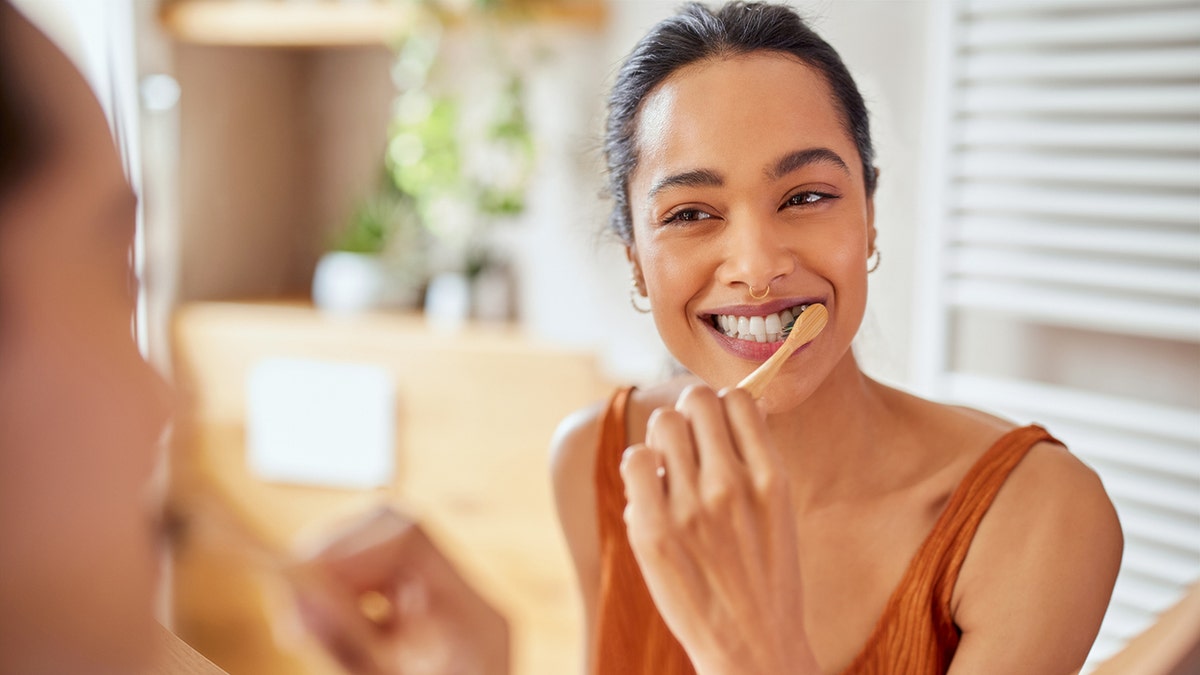
Experts say it's best to avoid using charcoal or other "abrasive" toothpastes. (iStock)
"Avoid trying at-home approaches before seeing a dentist, because some substances may damage the tooth enamel," he warned.
"Adequate" toothbrushing is an "effective" way to reduce the discoloration of your teeth, according to Santana.
PRACTICE GOOD ORAL HYGIENE TO PROTECT YOURSELF AGAINST PERIODONTITIS
"Tooth brushing with a correct brushing technique, employing a whitening dentifrice and using an electric toothbrush are effective resources to reduce tooth discoloration."
Fraundorf added that flossing with toothpaste, using a water flosser to remove plaque and using a tongue scraper daily to decrease bacteria can also promote whiter teeth.
2. Drink more water
Water is "the best thing you can drink to keep your teeth healthy and white," according to Fraundorf.
"Next time you have that cup of coffee or glass of red wine, take a swig of water in between sips and briefly swish around," she advised.
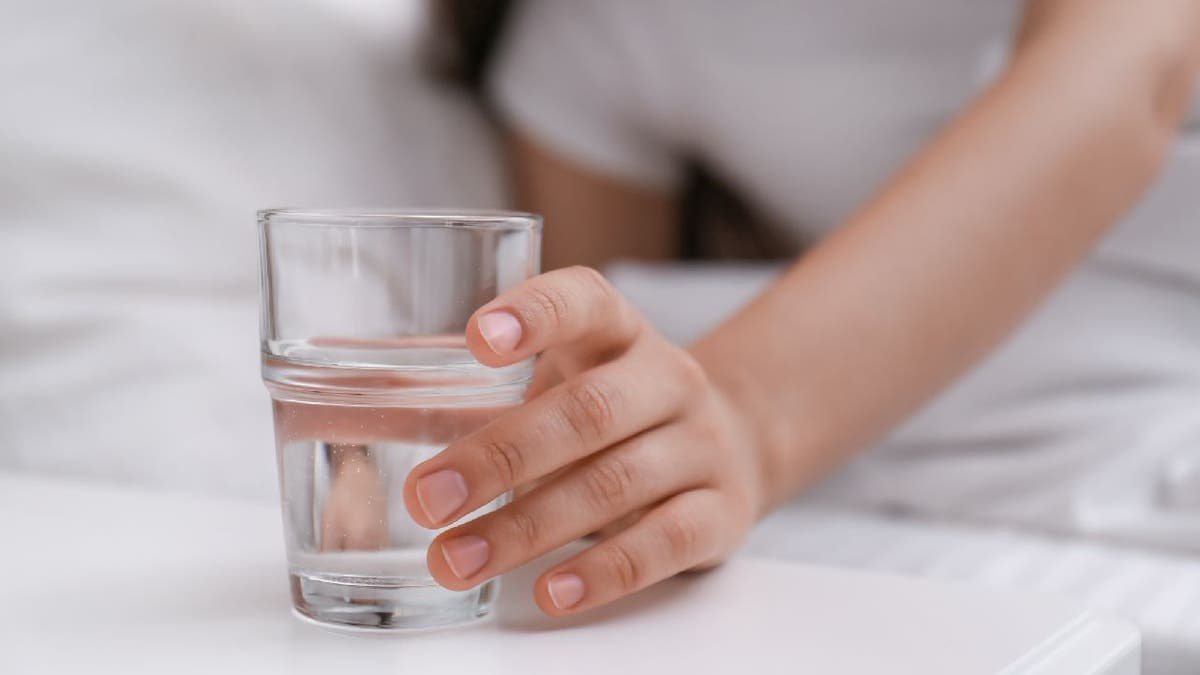
Water is "the best thing you can drink to keep your teeth healthy and white," a dentist suggested. (iStock)
"Water will not only prevent the staining particles from clinging onto your teeth, it will also help neutralize the acidity of the beverage."
Fraundorf also recommended choosing flat water rather than sparkling.
"Drink and swish with it frequently to neutralize your oral environment and fight stains," she suggested.
3. Chew sugar-free gum
Studies suggest that cavities are "significantly lower" in patients who chew sugar-free gum for 20 minutes after a meal, Fraundorf noted.
DENTISTS REVEAL WHY YOU SHOULDN'T BRUSH YOUR TEETH IN THE SHOWER
"Chewing sugar-free gum increases salivary flow by stimulating mechanical and taste receptors in the mouth," she told Fox News Digital.
"Saliva helps wash away food particles as well as dilute and neutralize acids produced by plaque bacteria on teeth, leading to a reduction in cavities and stains."
4. Drink through a straw
Using a straw, especially when drinking dark, acidic or sugary beverages, can help decrease the contact these substances make with your teeth.
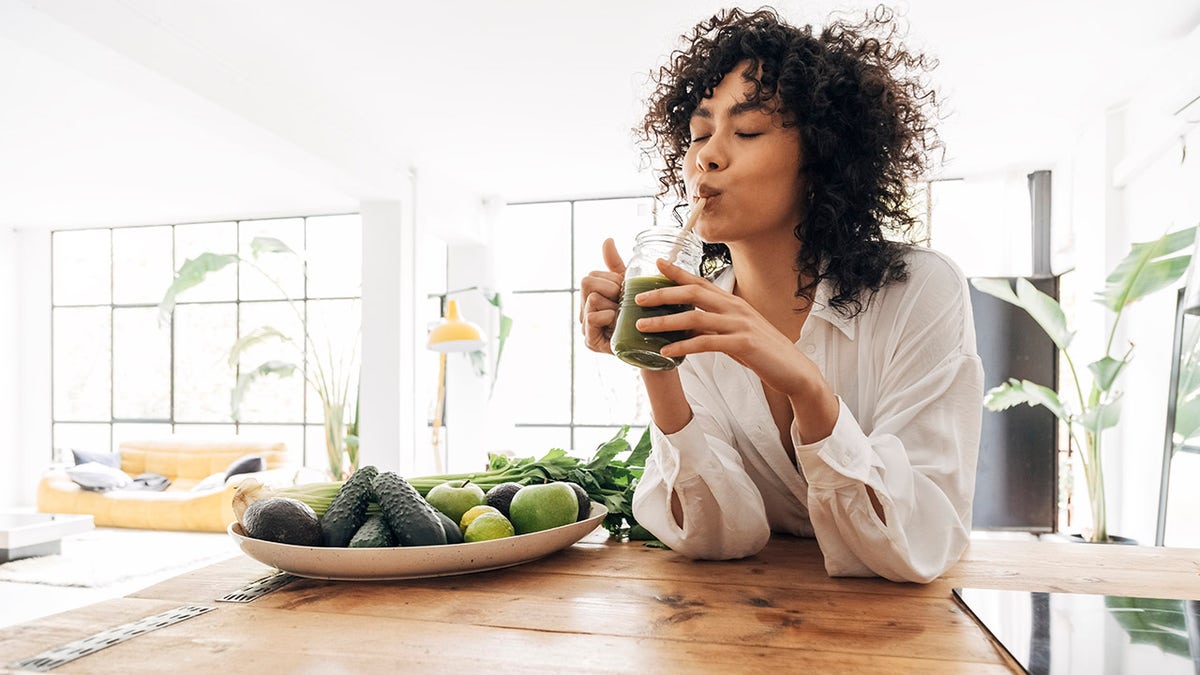
Drinking through a straw decreases the liquid's contact with your teeth, experts advised. (iStock)
"For extra credit, try drinking beverages more quickly to reduce the amount of time your oral environment is exposed to a lower pH, therefore decreasing the amount of enamel damage," Fraundorf said.
5. Fight stains with fruits and veggies
Certain foods and drinks — such as red wine, soda, soy sauce, curry, balsamic vinegar and coffee — may stain your teeth and should be avoided, Santana said.
ASK A DOC: 'WHY DO MY GUMS BLEED AFTER I BRUSH MY TEETH, AND WHAT SHOULD I DO ABOUT IT?'
"Moreover, although the scientific evidence is limited, consumption of a balanced, healthy diet — containing strawberries, grapes, apples, watermelon, papaya, pineapple, cheese, celery, carrots, broccoli and almonds — may limit tooth staining," he noted.
Fraundorf agreed that "superfoods may be one of the best (and tastiest) ways to whiten your teeth naturally."
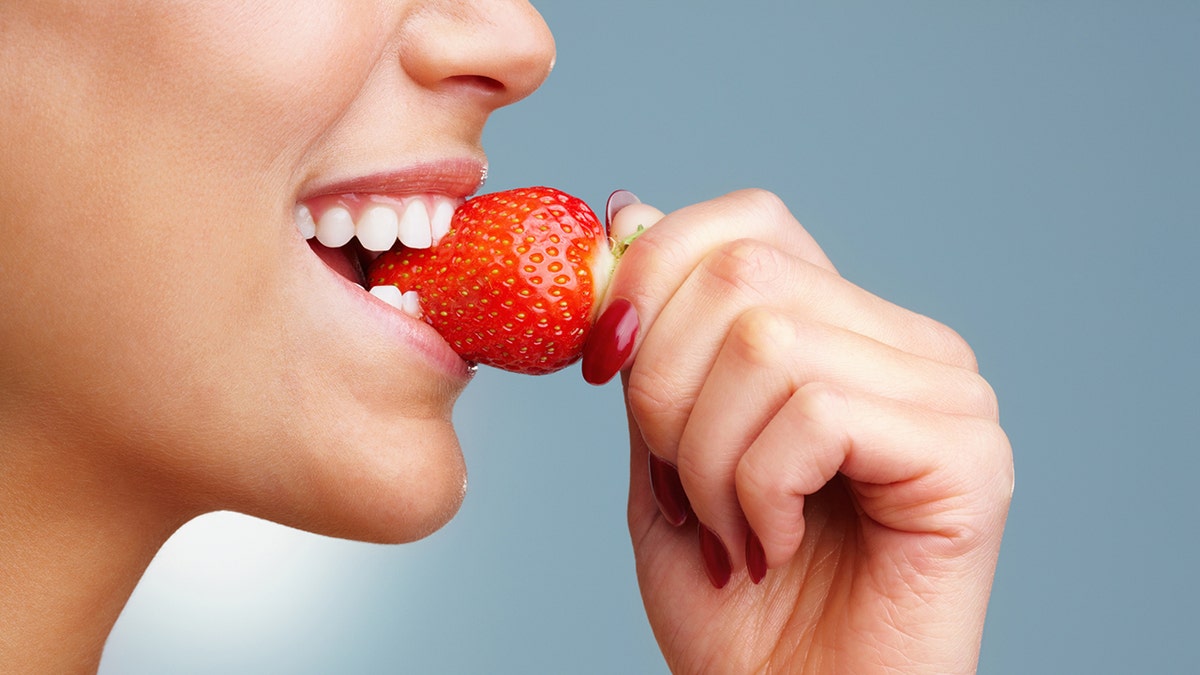
Superfoods like strawberries can help whiten teeth, according to experts. (iStock)
"Strawberries, apples and watermelon all contain a lot of malic acid, which helps whiten your smile by removing surface stains and increasing saliva," she said.
Other superfoods that can help whiten teeth include celery and leafy greens, since their "fibrous textures act like a natural toothbrush, exfoliating plaque off your teeth," Fraundorf added.
CLICK HERE TO SIGN UP FOR OUR HEALTH NEWSLETTER
"Dark, leafy greens also contain calcium, counteracting the effects of acids, and an abundance of folic acid, which is essential to gum tissue cell growth."
6. Visit the dentist
"Maintaining excellent oral health is the most important thing you can do to achieve a bright smile," Fraundorf told Fox News Digital.
"Set a calendar reminder to get regular check-ups and cleanings with your general dentist."
Santana added, "Your dentist can prescribe safe and customized resources for tooth whitening tailored to your specific needs."
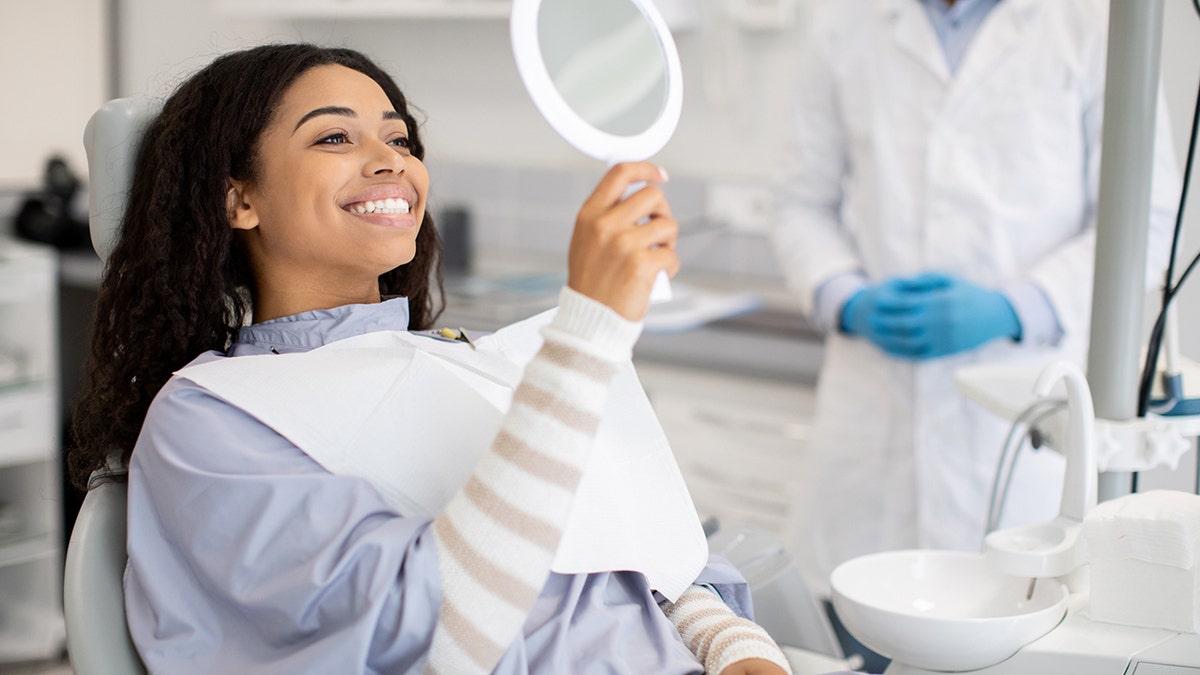
Patients should visit the dentist for a general check-up every six months, experts recommended. (iStock)
7. Consider professional teeth whitening
Although being diligent about oral care can help keep teeth bright, Fraundorf suggested that professional teeth whitening could be necessary to "take your smile to the next level."
"Maintaining excellent oral health is the most important thing you can do to achieve a bright smile."
"Whitening treatments are not one-size-fits-all, so it is important to seek customized care," she said.
"The most ideal whitening treatment is one specific to you, crafted based on your unique smile goals, teeth composition, diet, sensitivity level and lifestyle."
She added, "A multitude of factors go into a proper diagnosis and customized treatment plan for teeth whitening to ensure the best, most comfortable, beautiful results."
CLICK HERE TO GET THE FOX NEWS APP
Artificial tooth structures, like crowns, veneers and composites, won’t whiten, according to the expert — which means whitening these teeth will require extra restorative work.









































